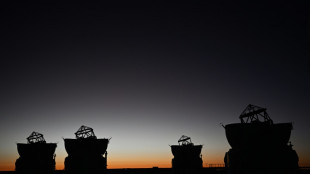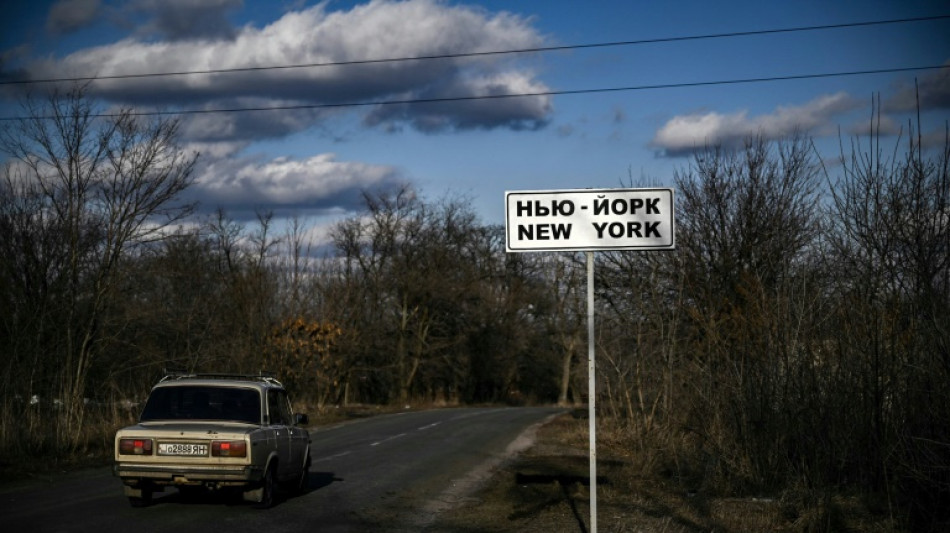
-
 Vonn to provide injury update as Milan-Cortina Olympics near
Vonn to provide injury update as Milan-Cortina Olympics near
-
France summons Musk for 'voluntary interview', raids X offices

-
 US judge to hear request for 'immediate takedown' of Epstein files
US judge to hear request for 'immediate takedown' of Epstein files
-
Russia resumes large-scale strikes on Ukraine in glacial temperatures

-
 Fit-again France captain Dupont partners Jalibert against Ireland
Fit-again France captain Dupont partners Jalibert against Ireland
-
French summons Musk for 'voluntary interview' as authorities raid X offices

-
 IOC chief Coventry calls for focus on sport, not politics
IOC chief Coventry calls for focus on sport, not politics
-
McNeil's partner hits out at 'brutal' football industry after Palace move collapses

-
 Proud moment as Prendergast brothers picked to start for Ireland
Proud moment as Prendergast brothers picked to start for Ireland
-
Germany has highest share of older workers in EU

-
 Teen swims four hours to save family lost at sea off Australia
Teen swims four hours to save family lost at sea off Australia
-
Ethiopia denies Trump claim mega-dam was financed by US

-
 Russia resumes strikes on freezing Ukrainian capital ahead of talks
Russia resumes strikes on freezing Ukrainian capital ahead of talks
-
Malaysian court acquits French man on drug charges

-
 Switch 2 sales boost Nintendo results but chip shortage looms
Switch 2 sales boost Nintendo results but chip shortage looms
-
From rations to G20's doorstep: Poland savours economic 'miracle'

-
 Russia resumes strikes on freezing Ukrainian capital
Russia resumes strikes on freezing Ukrainian capital
-
'Way too far': Latino Trump voters shocked by Minneapolis crackdown

-
 England and Brook seek redemption at T20 World Cup
England and Brook seek redemption at T20 World Cup
-
Coach Gambhir under pressure as India aim for back-to-back T20 triumphs

-
 'Helmets off': NFL stars open up as Super Bowl circus begins
'Helmets off': NFL stars open up as Super Bowl circus begins
-
Japan coach Jones says 'fair' World Cup schedule helps small teams

-
 Do not write Ireland off as a rugby force, says ex-prop Ross
Do not write Ireland off as a rugby force, says ex-prop Ross
-
Winter Olympics 2026: AFP guide to Alpine Skiing races

-
 Winter Olympics to showcase Italian venues and global tensions
Winter Olympics to showcase Italian venues and global tensions
-
Buoyant England eager to end Franco-Irish grip on Six Nations

-
 China to ban hidden car door handles in industry shift
China to ban hidden car door handles in industry shift
-
Sengun leads Rockets past Pacers, Ball leads Hornets fightback

-
 Waymo raises $16 bn to fuel global robotaxi expansion
Waymo raises $16 bn to fuel global robotaxi expansion
-
Netflix to livestream BTS comeback concert in K-pop mega event

-
 Rural India powers global AI models
Rural India powers global AI models
-
Equities, metals, oil rebound after Asia-wide rout

-
 Bencic, Svitolina make history as mothers inside tennis top 10
Bencic, Svitolina make history as mothers inside tennis top 10
-
Italy's spread-out Olympics face transport challenge

-
 Son of Norway crown princess stands trial for multiple rapes
Son of Norway crown princess stands trial for multiple rapes
-
Side hustle: Part-time refs take charge of Super Bowl

-
 Paying for a selfie: Rome starts charging for Trevi Fountain
Paying for a selfie: Rome starts charging for Trevi Fountain
-
Faced with Trump, Pope Leo opts for indirect diplomacy

-
 NFL chief expects Bad Bunny to unite Super Bowl audience
NFL chief expects Bad Bunny to unite Super Bowl audience
-
Australia's Hazlewood to miss start of T20 World Cup

-
 Bill, Hillary Clinton to testify in US House Epstein probe
Bill, Hillary Clinton to testify in US House Epstein probe
-
Cuba confirms 'communications' with US, but says no negotiations yet

-
 From 'watch his ass' to White House talks for Trump and Petro
From 'watch his ass' to White House talks for Trump and Petro
-
Trump says not 'ripping' down Kennedy Center -- much
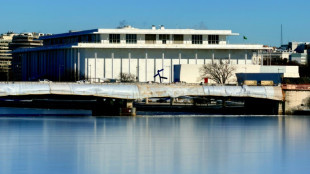
-
 Sunderland rout 'childish' Burnley
Sunderland rout 'childish' Burnley
-
Musk merges xAI into SpaceX in bid to build space data centers
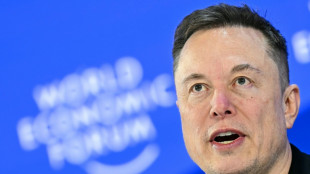
-
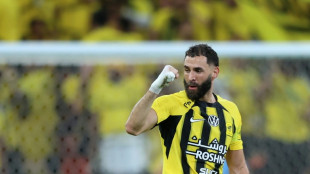 Former France striker Benzema switches Saudi clubs
Former France striker Benzema switches Saudi clubs
-
Sunderland rout hapless Burnley

-
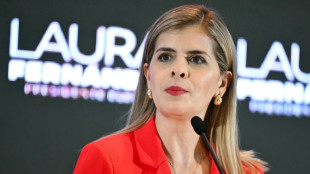 Costa Rican president-elect looks to Bukele for help against crime
Costa Rican president-elect looks to Bukele for help against crime
-
Hosts Australia to open Rugby World Cup against Hong Kong
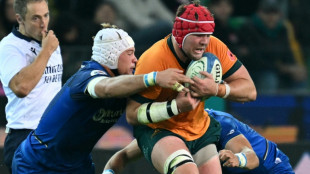

New name, little hope, in New York, Ukraine
The local billionaire's chemical plant stands on the edge of the frontline in New York, eastern Ukraine.
The only renovated building of this war-bruised town, called Novgorodske ("new city" in Ukrainian) until last year, is the local cultural centre.
Tetyana Krasko proudly pushes open its metal door and shows off an exhibit paying homage to Ukrainian soldiers fighting Russia-backed rebels for the past eight years.
But the centre offers few clues as to how a group of German settlers decided to call their new home in what was then part of the Russian empire New York in the 1800s.
Soviet officials switched the name to Novgorodske in 1951, only for the locals to flip it back to New York last year.
"It's a mystery that still hasn't been solved," Krasko says about all the name changes.
The name could very well change again should the masses of Russian forces encircling Ukraine on almost every side follow through with their feared invasion.
For now, New York's empty streets echo with the sounds of exploding shells from a new escalation in a separatist conflict that has claimed more than 14,000 lives and pushed 1.5 million from their homes.
Many of the houses in this town of what was once 10,000 people stand empty today. And those who remain have dark thoughts about the days ahead.
"We tell ourselves that they would be too afraid to bomb New York," Krasko says with a bitter laugh, before turning gravely serious.
"It's not funny. There have already been shellings. New York has already suffered."
- Generational divide -
Novgorodske became New York after a campaign launched by young activists in 2016, when the separatist war was just turning quieter after months in which dozens of people were dying each day.
"There was no desire from the local officials for the name change," said Krasko.
"Maybe they were afraid it would cause a scandal. Maybe they thought that having a New York on the frontline would sound weird."
The officials were supported by the older generation who felt personally attached to the old Soviet name.
"But the young people, those with an active social life, were all in favour of change," she said.
Sergiy and Angela, two 16-year-old interns at a college about 40 kilometres (25 miles) from New York, are not terribly bothered about the new name.
In fact, perhaps more than anything, they are thinking of leaving. There is just not that much to do in New York.
The town's main employer is a chemical plant owned by Rinat Akhmetov, a billionaire who has been viewed for years as one of Ukraine's most powerful men.
Akhmetov spends little time in this New York, which is the final stop on a train running from Kramatorsk, a city 45 kilometres to the north that serves as Kyiv's administrative centre for the war-torn east.
About 25 kilometres south lies Donetsk, the rebel stronghold.
"When I grow up, I don't know if it would make sense for me to stay," Sergiy says. "I don't know how long the war will last. We will probably have to leave."
- 'They are fools!' -
The war is on everyone's mind. A sharp escalation at the end of last week has locals fearing the worst.
"Is there going to be a war?" Klava Blynska, 90, shouts down from her balcony.
"I don't want a war! I've seen it before," she says, clearly in no mood to give serious thought to her town's name change.
"They are fools! Why did they do that," she fumes, before returning to the subject at hand: "If (Vladimir) Putin goes to war, he's a moron!"
But for her, as seemingly for many other Russian speakers in New York, the main culprits are the Ukrainian leaders who came to power after a 2014 pro-EU revolution.
"They would judge me in Kyiv if I told you what I think about all this," one middle-aged man said before slamming shut his gate in a huff.
Ella Pylipenko, a 29-year-old mother, contradicted most of her neighbours by saying, in a hushed voice, that she wanted "our land to remain in Ukraine", rather than become Moscow-run.
"But it's very difficult to live here," she added. "There's nowhere to work, the wages are small and there is this shelling."
X.Brito--PC

